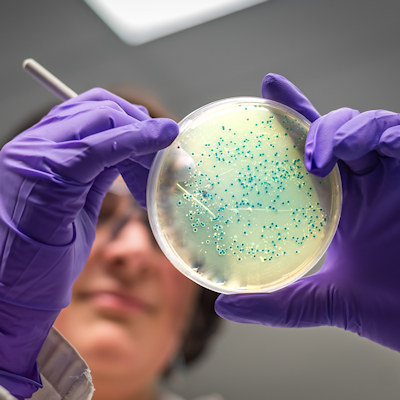July 16, 2021 -- A national survey of regenerative medicine biomanufacturing has revealed gaps in the training of skilled technical workers. The group behind the survey has proposed five steps to improve workforce quality and recently published its recommendations in Stem Cells Translational Medicine.
In a 2019 report, the National Science Board called for the creation of a skilled technical workforce in the field of regenerative medicine biomanufacturing. Further emphasizing this need, the COVID-19 pandemic has led to increased demand for skilled technical workers to support R&D, clinical translation, and scaling biomanufacturing and biopharmaceutical operations to produce vaccines and therapies.
"Regenerative medicine biomanufacturing represents one of the emerging technology-driven growth sectors," said Josh Hunsberger, PhD, chief technology officer of RegenMed Development Organization (ReMDO), in a statement. "With recent and projected future growth in regenerative medicine, the availability of a knowledgeable and skilled workforce is a critical success factor for business and academic organizations. As the field progresses from research to clinical translation and from translation to biomanufacturing, the skill requirements are evolving."
Workforce preparation can be broken down into three essential categories: basic employability skills, core bioscience skills, and technical skills for regenerative medicine biomanufacturing.
Basic employability skills (soft skills) are organized into personal skills, people skills, applied knowledge, and workplace skills, as defined by the National Network of Business and Industry Associations' Common Employability Skills. The National Center for the Biotechnology Workforce published standards for core bioscience technical skills in 2016, which are organized around six "critical work functions":
- Maintaining a safe and productive work environment
- Providing routine facility support
- Performing measurements/tests/assays
- Complying with applicable regulations and standards
- Managing and communicating information
- Performing mathematical manipulations
These six standards form the foundational technical skills for regenerative medicine biomanufacturing.
The RegeneratOR Workforce Development Initiative was launched by ReMDO and was formed to develop a national workforce development ecosystem for regenerative medicine biomanufacturing. ReMDO surveyed academic and private sector enterprises in regenerative medicine. The goal of the survey was to determine the technical skills needed for skilled technical workers to be successful in the regenerative medicine biomanufacturing industry.
"The RegeneratOR initiative has undertaken a necessary early step with its survey by articulating the knowledge, skills, and abilities needed to align education and workforce development programs with employer needs," said Gary Green, EdD, chief workforce development officer for the Wake Forest Institute for Regenerative Medicine (WFIRM), which worked closely with ReMDO on this effort.
The results of the survey identified 15 skill sets addressing the specialized needs of regenerative medicine and related biotechnology sectors. The skill sets in highest demand were manufacturing operations management and cell science. Overall, the survey indicated that 20% to 40% of employers in regenerative medicine lack needed skill sets and are unable to hire for those skills in the current labor market.
Based on the survey results, the ReMDO team made five recommendations to develop the workforce development ecosystem:
- Provide faculty-development opportunities in regenerative medicine for kindergarten through 12th grade, as well as community colleges and universities (including four-year colleges), that are aligned with industry needs that support grade/level appropriate learning.
- Incorporate regenerative medicine principles and applications in science, technology, engineering, and mathematics-related academic curricula, recognizing the multidisciplinary nature of the field.
- Provide progressive levels of work-based learning in regenerative medicine spanning kindergarten through 12th grade to university.
- Pursue a diverse and inclusive skilled technical workforce in regenerative medicine.
- Advocate for policy and investments in regenerative medicine and convergent technology workforce development.
"The insights provided by these survey results are an essential starting point to help us prepare for the future of regenerative medicine biomanufacturing," said co-author Dr. Anthony Atala, who serves as director of WFIRM. "It is crucial to have a trained and highly skilled workforce in place to advance the important research now reaching patients."
Do you have a unique perspective on your research related to drug development or manufacturing? Contact the editor today to learn more.
Copyright © 2021 scienceboard.net








